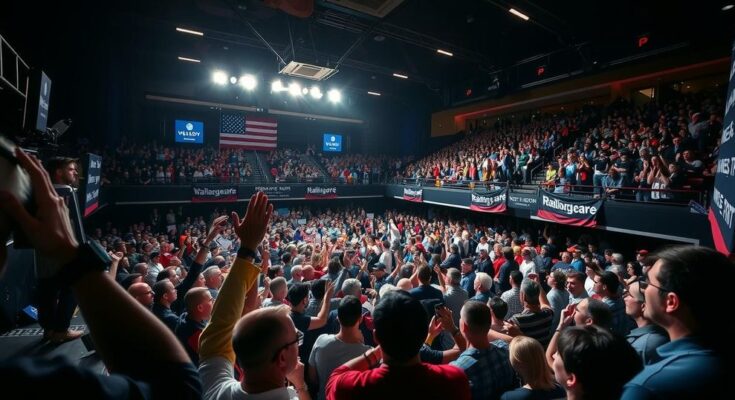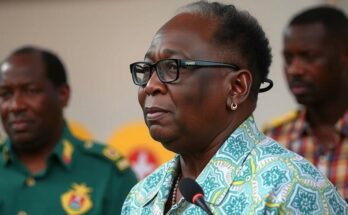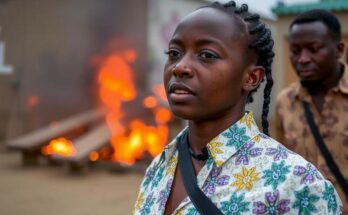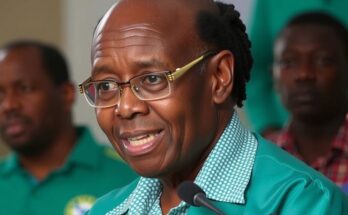Donald Trump’s recent MAGA rally at Madison Square Garden showcased extreme language and a combative atmosphere among conservative supporters. Featuring overt racism and aggressive commentary from various speakers, the event sought to reaffirm loyalty and challenge opposition, emphasizing a narrative of inevitable Republican resurgence despite the unlikelihood of electoral success in New York.
On Sunday, Madison Square Garden hosted a significant event branded as Donald Trump’s MAGA Lollapalooza, commencing with a clip from the iconic film “Patton.” The imagery and rhetoric evoked a sense of militarism, which felt unsettling in the context of a right-wing gathering that emphasized an aggressive stance against perceived internal adversaries. The lengthy rally featured prominent MAGA figures and a series of performances that exhibited blatant racism and hostility towards various demographic groups. The event included a performance by comedian Tony Hinchcliffe, whose derogatory comments about Latinos and African Americans were strikingly brazen. Additionally, businessman Grant Cardone called for a violent response to Trump’s competitors, while others likened Kamala Harris to the Antichrist. This pervasive vitriol and derogatory labeling of Democrats represented one of the harsher iterations of Trump rallies, marked by intense red lighting and heavy metal music, signaling a chaotic and almost dystopian atmosphere. While it is doubtful that the rally positively influenced Trump’s electoral prospects in New York, a state not considered a battleground, it served various psychological and strategic purposes. Primarily, it provided a platform for Trump to seek validation and demonstrate dominance in a traditionally liberal city, fostering a narrative of inevitable Republican resurgence. Notably, there was an underlying insistence from attendees that they would not accept a Harris victory, as evidenced by Tucker Carlson’s remarks emphasizing Trump’s role in liberating his supporters from the obligation of deception. In conclusion, the event underscored the MAGA movement’s continued embrace of aggressive rhetoric and identity politics, generating an atmosphere of loyalty and fervor among supporters, albeit at the fringes of mainstream acceptance.
The article examines a recent MAGA rally held at Madison Square Garden, illustrating how the event exemplified the ongoing aggressive rhetoric employed by Trump and his supporters. The rally featured inflammatory speeches and performances aimed at rallying the base while emphasizing hostility toward opponents. It reflects broader themes in contemporary American politics regarding the rise of populism and the polarizing nature of current electoral strategies. Moreover, it hints at the psychological need for affirmation among Trump’s followers in a predominantly Democratic locale.
The Madison Square Garden rally highlighted the MAGA movement’s reliance on aggressive, divisive rhetoric and its efforts to bolster morale among supporters. This event served not only as a demonstration of loyalty to Trump but also as an assertion of power and identity, framing the political landscape in starkly adversarial terms. Despite questionable electoral benefits in New York, the rally reinforced a narrative of resilience and the rejection of opposing viewpoints.
Original Source: www.nytimes.com




